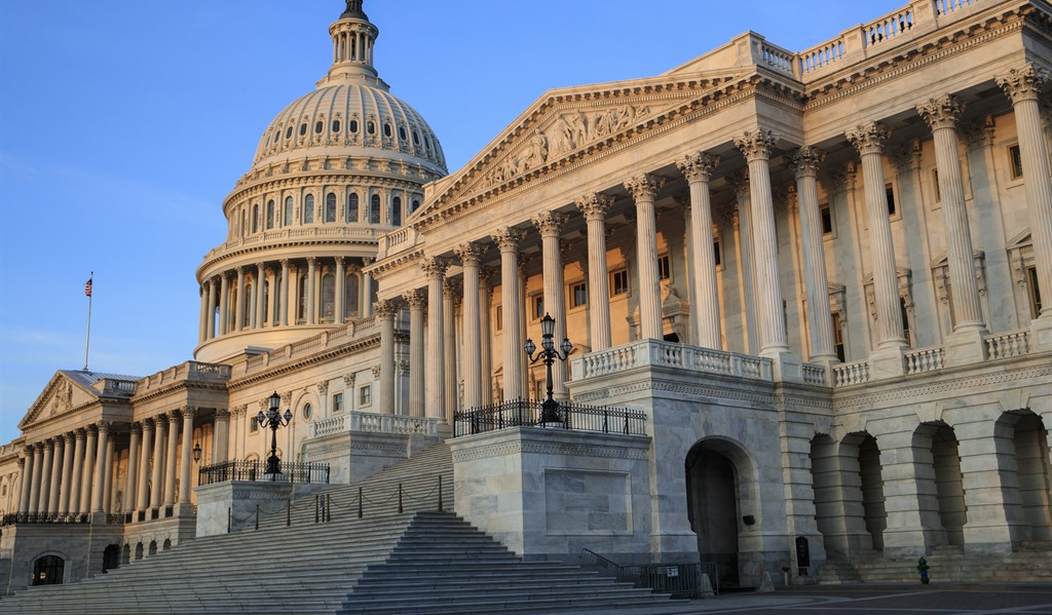The CBO says the Senate health reform bill would leave 22 million more people uninsured in 2026 compared to current law. That’s a slight improvement over the House bill which the CBO said would leave 23 million uninsured the same year. The CBO does note that the majority of this change next year would be the result of eliminating the penalty on not having insurance. From the CBO report:
CBO and JCT estimate that, in 2018, 15 million more people would be uninsured under this legislation than under current law—primarily because the penalty for not having insurance would be eliminated. The increase in the number of uninsured people relative to the number projected under current law would reach 19 million in 2020 and 22 million in 2026. In later years, other changes in the legislation—lower spending on Medicaid and substantially smaller average subsidies for coverage in the nongroup market—would also lead to increases in the number of people without health insurance.
The CBO estimate has the usual section offering caveats about the difficulty of making such estimates. That section also notes that even the 2016 estimate of current law, against which the Senate bill is being compared, may not be accurate:
CBO and JCT have endeavored to develop budgetary estimates that are in the middle ofthe distribution of potential outcomes. Such estimates are inherently inexact because theways in which federal agencies, states, insurers, employers, individuals, doctors,hospitals, and other affected parties would respond to the changes made by thislegislation are all difficult to predict. In particular, predicting the overall effects of themyriad ways that states could implement waivers is especially difficult.
CBO and JCT’s projections under current law itself are also uncertain. For example,enrollment in the marketplaces under current law will probably be lower than was projected under the March 2016 baseline used in this analysis, which would tend todecrease the budgetary savings from this legislation.
In fact, we know the CBO’s previous estimates of Obamacare enrollment have been badly wrong. From the Wall Street Journal:
In February 2013, CBO predicted that ObamaCare enrollment in the individual market would be 13 million in 2015, 24 million in 2016 and 26 million in 2017. The actual enrollment for those years were, respectively, 11 million, 12 million and 10 million. As recently as March 2016, CBO was projecting an enrollment boom of 15 million for this year.
Here’s CBO’s March 2016 estimate showing Obamacare marketplace enrollment this year would be 15 million. In fact, actual enrollment was down this year and is currently somewhere around 10.5 million. So the CBO estimate of current law leaves a lot to be desired. In any case, the Senate bill itself is still a moving target as the NY Times points out today:
Earlier Monday afternoon, Senate Republican leaders altered their health bill to penalize people who go without health insurance by requiring them to wait six months before their coverage would begin. Insurers would generally be required to impose the waiting period on people who lacked coverage for more than about two months in the prior year.
The waiting-period proposal is meant to address a conspicuous omission in the Senate’s bill: The measure would end the Affordable Care Act’s mandate that nearly all Americans have health insurance, but it also would require insurers to accept anyone who applies. The waiting period is supposed to prevent people from waiting until they get sick to purchase a health plan. Insurers need large numbers of healthy people to help pay for those who are sick.
Even using reconciliation, the GOP can only afford to lose two votes in the Senate and still get the bill passed. CNN has been keeping a Senate whip count which currently shows 5 Senators against the current bill (and several more with standing concerns or demands). The bottom line is that this CBO estimate is going to make it very tough to have a successful vote on this bill this week.








Join the conversation as a VIP Member